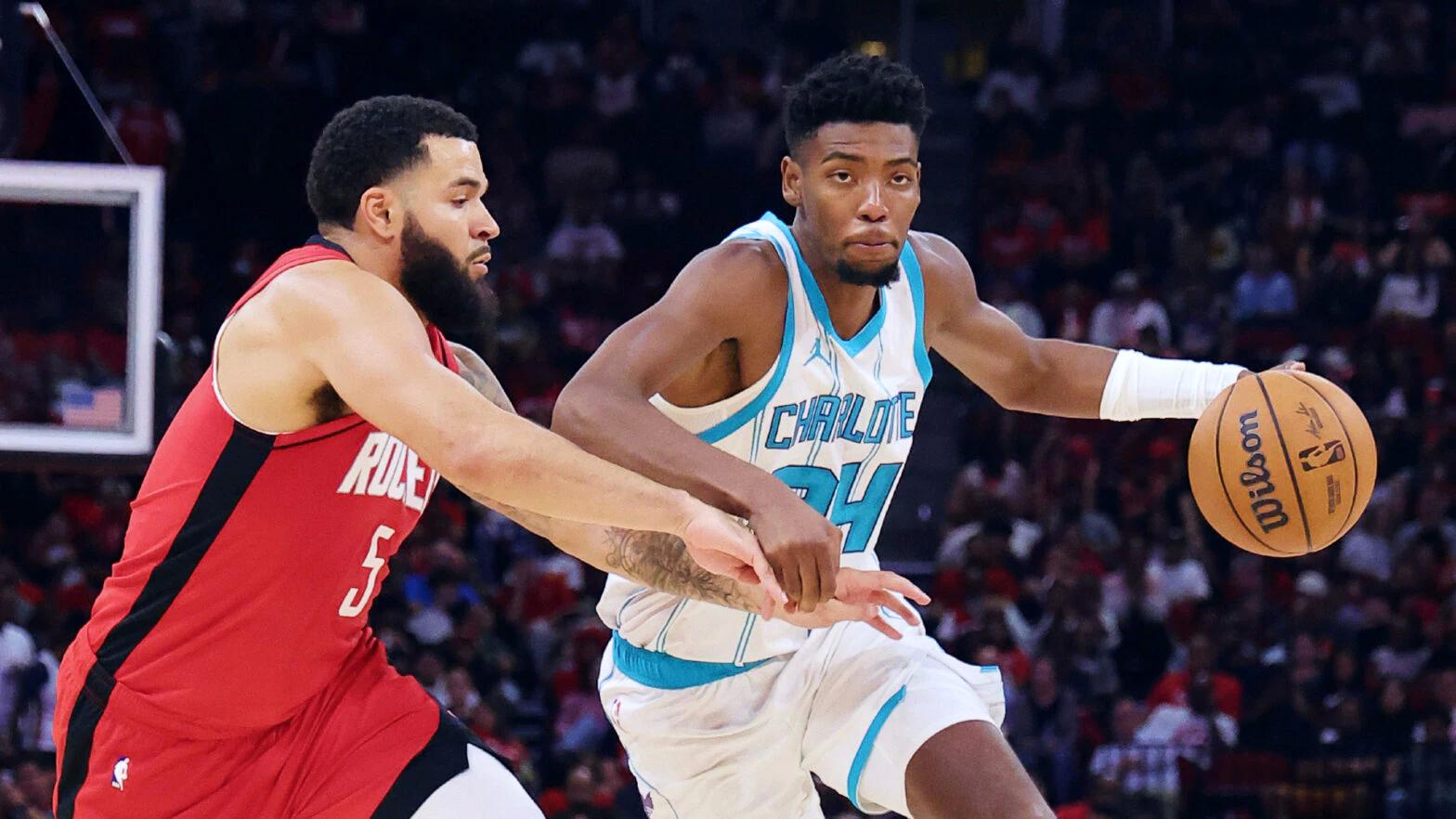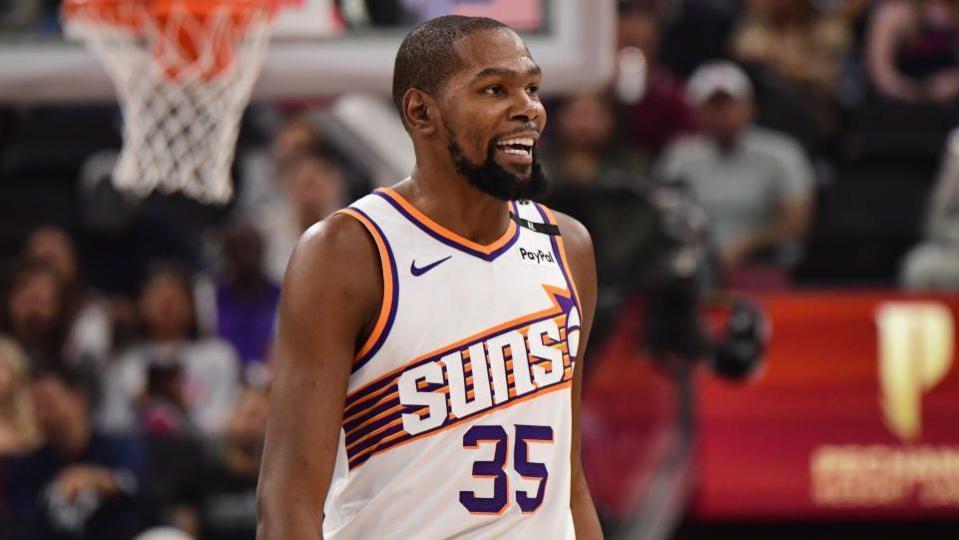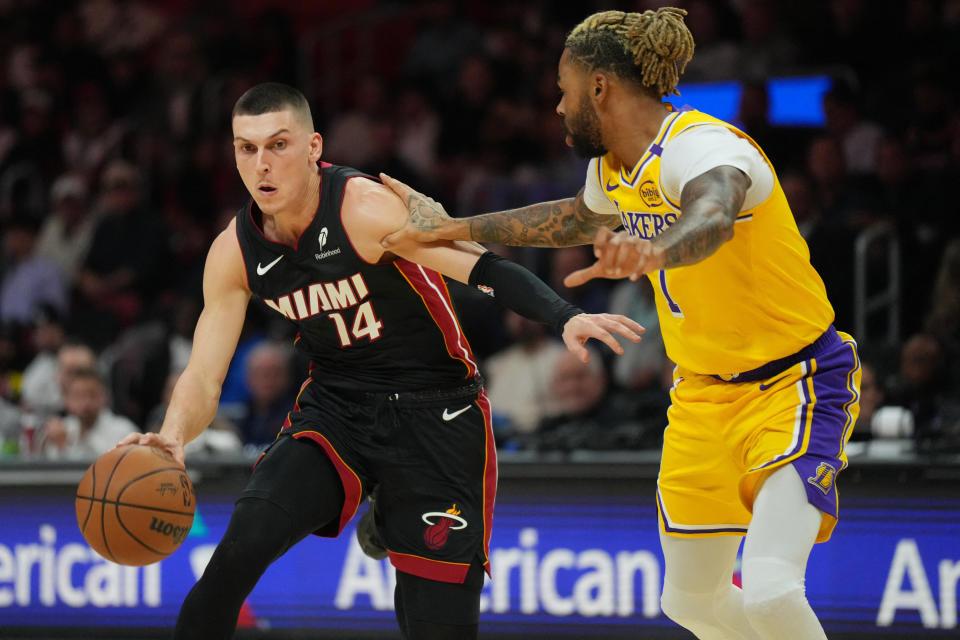The NBA rookie class is enduring an historically challenging debut season
NBA coaches are an integral part of every team, providing leadership, strategy, and guidance to players on and off the court. They are responsible for building team chemistry, analyzing opponents, and making critical decisions during games. With their experience and expertise, NBA coaches play a crucial role in the success of their teams and have a significant impact on the outcome of games. From developing young talent to managing egos and personalities, NBA coaches must possess a unique skill set to navigate the challenges of professional basketball.
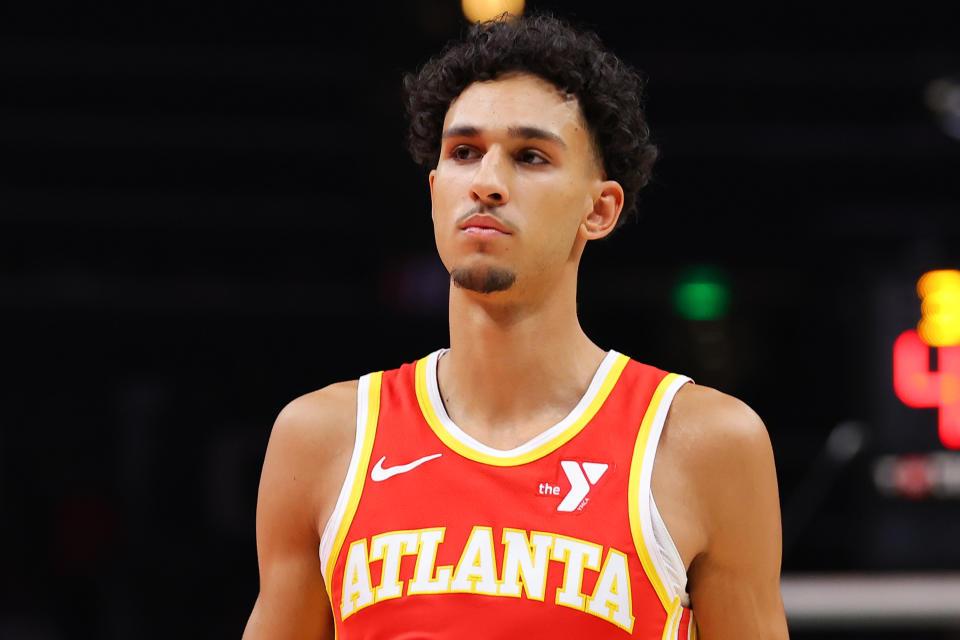 Zaccharie Risacher, the No. 1 pick in the 2024 draft, and the rookie class have gotten off to a slow start. (Photo by Kevin C. Cox/Getty Images)
Zaccharie Risacher, the No. 1 pick in the 2024 draft, and the rookie class have gotten off to a slow start. (Photo by Kevin C. Cox/Getty Images)The way it’s going, we might be witnessing the worst class to enter the NBA in league history. Rookies have been glued to the bench in ways that we haven’t seen. And even when the rooks do play, the team barely trusts them for any sort of real responsibility.
You know about the Freshman 15, when first-year college students inevitably put on 15 pounds from partying and pizza.
ADVERTISEMENTAdvertisementLet me introduce you to the other Freshman 15. Not one rookie has scored 15 points in a game this season. Nada.
Fifteen points is not a high bar, especially in today’s scorer-friendly environment where no one blinks an eye at a team scoring 140 points. And yet, no freshman pro player has cleared that 15-point threshold — not Risacher, Sarr or anyone else drafted in the lottery. According to Stathead.com, we have never gone this “deep” into the season with a rookie failing to score a measly 15 points in an NBA game.
Last year, two rookies scored 15-plus in their very first games, San Antonio’s Victor Wembanyama (15 points) and Dallas center Dereck Lively II (16 points). In the second game of the season, two more names were added to the list, Charlotte’s Brandon Miller (17 points) and Chet Holmgren (16 points). Third game of the season, another name: Gradey Dick, who tallied 16 points for the Toronto Raptors. In every team’s first three games, rookies had crossed the 15-point plateau a total of eight times last year (Holmgren, Miller and Wembanyama did it multiple times).
But this season, that same number is zilch.
Since 1970, we typically see about nine such performances at this point in the season, sometimes as many as 17. The 2014-15 season represents the previous low mark which registered only one 15+ scoring game in the opening week, and it was done by noted non-scorer in Orlando’s Elfrid Payton. This season? We’re still looking for our own Elfrid Payton.
Story continuesCoaches across the NBA just aren’t trusting the rooks to do much of anything.
The consensus preseason Rookie of the Year pick, Reed Sheppard, has been riding pine for Ime Udoka’s Houston Rockets. The Kentucky product played 15 minutes on opening night, but has seen his playing time dwindle in each game since, down to just three minutes in Monday’s win over the Spurs. The sharpshooter has shot just 4-of-12 in 38 minutes thus far.
Zach Edey, another popular pick for Rookie of the Year (including yours truly), has started every game for the Memphis Grizzlies. That’s the good news. The bad news can be found everywhere else. The 7-foot-4 center has logged more fouls (15) than field goals (14). He has registered one more block than his 5-foot-8 teammate Yuki Kawamura, and Kawamura has zero. With all the foul trouble and general ineffectiveness, Edey has averaged just 16 minutes per game, the league’s lowest of any full-time starter.
Zach Edey has spent most of his time in the NBA on the bench. (AP Photo/Brandon Dill)Atlanta’s top overall pick, Risacher, has shown flashes of promise, but the 19-year-old came off the bench in the team’s first two games — a rarity in the annals of No. 1 overall picks — and has registered an abysmal 38.3 percent true-shooting percentage in his first foray in pro American hoops.
In Charlotte, the seventh overall pick, Tidjane Salaun, didn’t start in his first two games either; he actually didn’t even play. A DNP-Coach’s Decision for the team’s first two games, the French teenager evidently hasn’t earned the trust of first-year head coach Charles Lee. And it’s not as if the Charlotte Hornets' roster reminds anyone of the 1996 Chicago Bulls.
By the way, has anyone heard from Rob Dillingham? The eighth overall pick in Minnesota hasn’t even gotten into a game yet. In retrospect, John Calipari looks charitable after he brought Dillingham off the bench at Kentucky last season. Chris Finch hasn’t called his number once, and the same goes for the team’s other first-round pick, Terrence Shannon Jr.
The tanktastic Wizards have been the boldest team in the rookie department. Coach Brian Keefe started the team’s two heralded lottery picks Sarr and Bub Carrington in the season opener against Boston. But even Keefe couldn’t stomach that situation for long. After two blowout losses, Jonas Valančiūnas replaced Carrington in the starting lineup to give Sarr some muscle up front. After three games, Carrington has scored three, 10 and 13 points.
And here’s the crazy thing: Carrington is your rookie scoring leader! The Pittsburgh product has averaged 8.7 points per game so far this season and that makes him the top scorer in the rookie class. Yes, single digits. To answer the question raised by NBA voice of the gods Beau Estes, my research shows that there has never been a rookie class without at least one player who averaged double-digit scoring.
This isn’t just about points per game. Sarr and Carrington represent No. 1 and No. 2 in highest minutes per game among rookies, and they haven’t even played 30 minutes in a game this season. In case you were wondering, there’s also a pseudo NBA record in that category, too. Through teams' opening three games, we have never seen a season in which a rookie didn’t log 30-plus minutes in at least one game, per Stathead.com tracking. By comparison, there were 19 such instances as recently as 2021-22 — the Cade Cunningham class.
On Tuesday night, Utah rookie Cody Williams logged 29 minutes and 58 seconds in the team's fourth game, making him the first rook to touch the 30-minute plateau. Though a handful of teams haven’t played their fourth games yet, having one lone 30-minute appearance from the rookie class at this point would also be unprecedented. We actually haven’t had fewer than five such games from the rookie class since 1964-65, according to Stathead.com.
So what’s driving the great Rookie Recession of 2024? Plenty of NBA draftniks urged patience with this draft group that lacked a home-run talent like Wemby, Zion or LeBron. They’re young, too. There were more 18-year-olds drafted in the lottery (three — Salaun, Carrington and Nikola Topić) than those that could legally purchase a Bud Light in the United States (two — Edey and Devin Carter).
Speaking of Carter and Topić, it certainly doesn’t help that those two lottery picks have been sidelined with injury. Three other first-rounders, Toronto’s Ja’Kobe Walter (No. 19), Denver’s DaRon Holmes (No. 22) and Utah’s Isaiah Collier (No. 29) are working back from bodily ailments as well. But injuries happen every season, and rookie classes aren’t immune to setbacks like that.
The most obvious explanation is that this group just isn’t that good. It happens. Perhaps the closest comp is the 2000-01 class after Kenyon Martin was selected No. 1 overall by the New Jersey Nets. The Cincinnati phenom led his rookie class in scoring with a paltry 12.0 points per game, but that can be partially explained by him recovering from a broken leg suffered in his last season as a Bearcat. (Marc Jackson — not Mark — actually posted a 13.2 scoring average in 48 games for the Golden State Warriors if you want to count that, but there’s an important caveat to his rookie status: He was 26 years old.)
My digging into draft history data suggests that the 2000 draft class ranks as one of the worst draft classes in NBA history, counting only three eventual All-Stars in the group and none made more than one All-Star appearance. Five of the top seven picks had washed out of the league by the decade’s end. There were slow starts in that class, too, and it proved to be more than just an aberration.
There is a glimmer of hope for this 2024 crew. Remember Elfrid Payton and the 2014-15 rookie class that struggled out the gate? Little did we know back then that two 2014 draftees who didn’t play the entire season — forget the first few games — would later go on to become MVPs. Those players? Joel Embiid and Nikola Jokić. Embiid sat for two seasons with injury issues and Jokić was stashed overseas for a season before Denver’s second-round pick made his stateside debut in October 2015. For that matter, you can count Julius Randle in that group of red-shirt stars from the 2014 class. The seventh overall pick suffered a broken leg in his very first game in the NBA, prematurely ending his rookie season, and as we know now, he would later etch his name to three All-Star teams.
Maybe the 2024 class will be like the 2014 one. Looking deeper into the data, the first week of rookie production carries little to no correlation to career performance. Sometimes it portends ineptitude, sometimes it doesn’t. After all, an 18-year-old Giannis Antetokounmpo received some DNP-CDs at the dawn of his Hall of Fame career, too. Teenagers almost never arrive as good NBA players out of the gate, a fact that provides a tonic to some nauseating moments from Risacher and Sarr, who both won’t turn 20 until April.
Perhaps Risacher, Sarr, Sheppard and the rest of the rookie class get it going soon, and this bumpy start will feel like a distant memory. But in order to average double-digit scoring, the coaches have to at least let the kids eat. So far, that isn’t happening much. At the very least, let’s hope a rookie will feast in the coming days and put on a Freshman 15 for us all. Maybe Risacher and Sarr do it on Wednesday.
RELATED STORIES

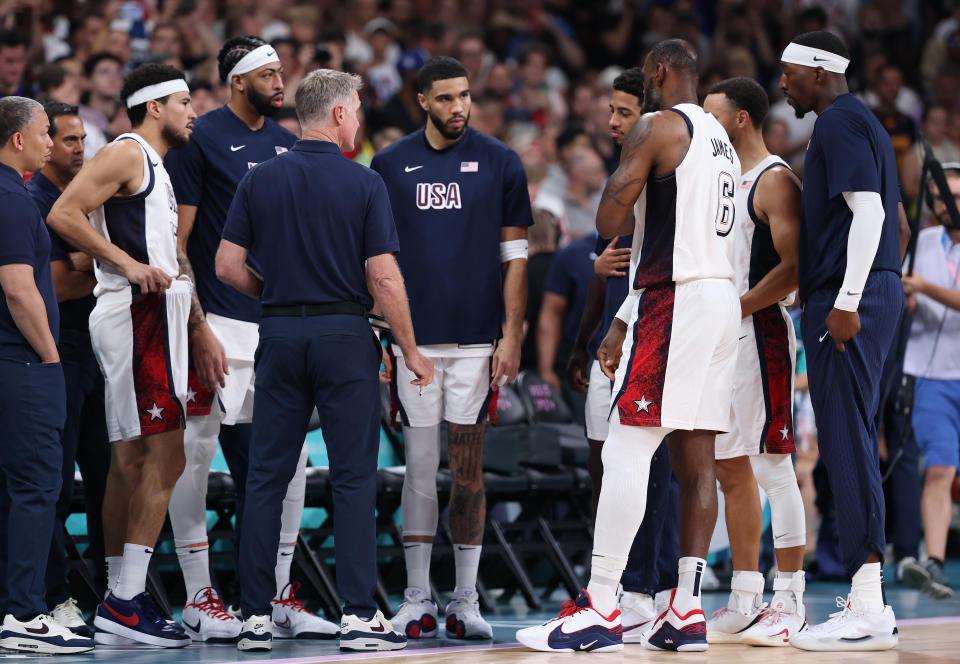




LATEST NEWS
